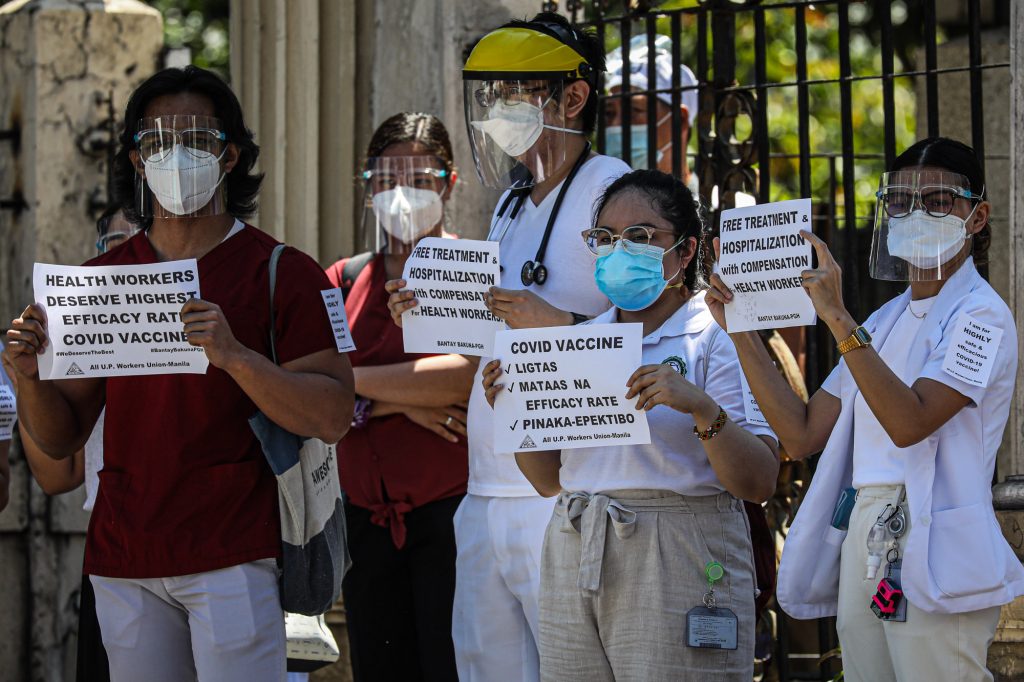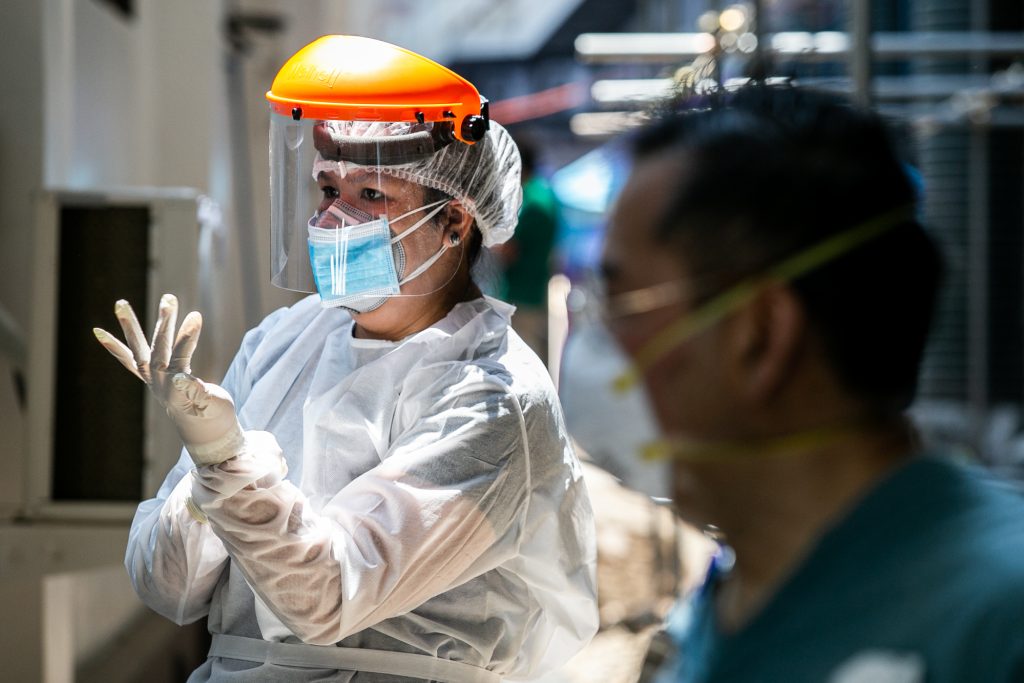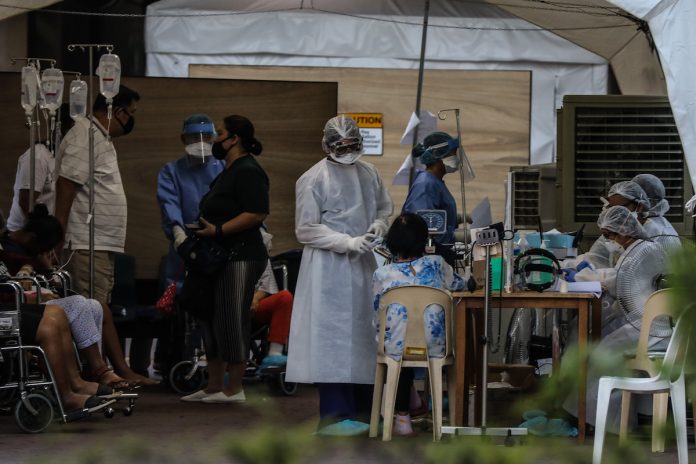The Philippines is currently facing a health and human rights crisis that the government must immediately address, said rights group Amnesty International.
“Over a year into the pandemic, the Philippine government’s continued failure to ensure an adequate response is a serious human rights issue,” said Emerlynne Gil, Amnesty International’s deputy regional director.
“The authorities must provide healthcare without discrimination using their maximum available resources,” said Gil in a report released on Monday, April 26.
The human rights group noted that thousands of Filipinos continue to struggle to access adequate healthcare as hospitals remain at risk of being overwhelmed due to the growing number of COVID-19 cases in the country.
On Wednesday, April 28, the Philippines recorded 6,895 new COVID-19 cases while 10,739 patients were reported to have recovered and 115 died.
There are currently 67,769 COVID-19 positive cases in the country, according to the Department of Health.
Since the beginning of the pandemic, more than a million people have already been infected by the virus and 17,000 people have lost their lives to COVID-19.
From the usual 2,000-3,000 reported cases since October 2020, the country’s daily tally began to surge in mid-March reaching as many as over 15,000 new cases on April 3, 2021, the highest since the pandemic began in March 2020.
Amnesty International’s Gil urged the government to put in place “specific measures to protect those most affected, including health workers and those most at-risk.”
She said the government must also stop attacking human rights defenders and activists, “a practice that only makes a dire situation worse.”

Healthcare access in critical state
Amnesty International said the “mishandling of the pandemic” by the Philippine government has resulted in a “critical lack of access to healthcare.”
Health workers have earlier raised the alarm about hospitals being overwhelmed owing to lack of beds and insufficient health personnel.
“It is heart-breaking to see dozens of ambulances and private vehicles lining outside hospitals. Inside, there are people with COVID-19 with their families, some of them dying as they wait for medical care,” said Gil.
The recent surge of cases also highlighted the severe difficulties that Filipino health workers face. Amnesty International noted “very little improvement” from the situation when the pandemic started last year.
As of April 2021, at least 80 health workers in the Philippines have lost their lives due to COVID-19, according to the Health department.
“The government must immediately provide [health workers] with adequate and sufficient protective equipment, as well as just terms and conditions so they can carry out their vital work,” said Gil.
Several health workers organizations reported that many in their ranks have yet to receive their legally mandated allowances, including a special risk allowance, a hazard pay, and allowances for food, transportation and accommodation.

Human rights abuses
Amnesty International also noted that marginalized communities people suffer not only from lack of access to healthcare but also from abusive police officers.
Early in April, the Philippine National Police announced that quarantine violators would no longer be arrested, following the death of two men at the hands of police and local officials.
“All Filipinos are suffering under the pandemic, but the most marginalized are experiencing the worst impacts,” said Gil.
The pandemic also became an opportunity for the government to launch fresh attacks on human rights, said Amnesty International.
Individuals and groups that set up “community pantries” in their neighborhoods to provide food and other basic necessities to people most affected by the pandemic have been accused of having links to the communist underground movement.
The Alliance of Health Workers has expressed alarm at being “red-tagged” by the government’s National Task Force to End Local Communist Armed Conflict after calling for increased government support and better response to the pandemic.
The task force is also behind the “red-tagging” of many other human rights defenders and activists that often leads to increased harassment, attacks, and even killings.
“The Duterte administration’s continued practice of ‘red-tagging’ and attacks on human rights only further exacerbates the dire situation that the country is facing,” said Gil.
Amnesty International called on Duterte and the government “to end its attacks on human rights and urgently focus efforts on mitigating the devastating effects of the COVID-19 pandemic.”
“Anything less is yet another failure of governance,” said Gil.









